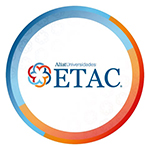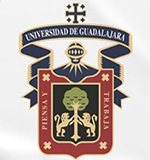Introduction to the Autonomous University of Puebla (UPAEP University) in Mexico:
Introduction: The Autonomous University of Puebla is a private university with a high reputation in Mexico. It has a certain influence both domestically and internationally. It is committed to teaching, scientific research and social services, and provides students with high-quality education and opportunities for all-round development.
Overview: The school is located in Puebla, Mexico, with an urban campus consisting of several buildings distributed in the Santiago district of Puebla City and other campuses located in the metropolitan area and Atlixco City. The main campus has 103 laboratories and classrooms, 11 of which are entirely used for research. In addition, there is a campus in Tehuacán City and nine high schools in Puebla and Tlaxcala. The school offers educational programs covering a wide range of fields, including 43 undergraduate programs, 34 master's programs, 12 doctoral programs and 11 professional programs.
History: Founded on May 7, 1973. Founded by Catholic students who protested against the left-wing tendencies of the Autonomous University of Buenaventura Carranza and established the school through the student organization Anti-Communist University Front with the support of the Archbishop.
Founded: 1973.
School strength: It is a member of the ednet education network recognized by the Massachusetts Institute of Technology and is part of the Institute for Competitiveness and Strategy of the Harvard Business School. It is one of the founding universities of the Mexican Federation of Private Higher Education Institutions and a member of the National Association of Universities and Higher Education Institutions. About nine out of ten students study in accredited courses, the second highest ratio among private universities in Mexico.
Institutional nature: Private (Catholic), non-profit university.
Educational philosophy: Committed to the search and dissemination of truth, consistent with Christian humanism. It aims to cultivate professionals who can change and transform society for the common good, emphasizing the cultivation of leaders with a sense of social responsibility.
Key laboratories and disciplines: The school has several research centers, such as the High-Tech Service Center, the Native Plant Research Center, the Conservation Agriculture Technology Innovation Center, the Economic Intelligence Research Center, the Science and Religion Research Center, etc. It has strong strength and high reputation in the fields of economics, management, engineering, information technology, etc.
Faculty: The school has several colleges, including the School of Economics and Administrative Sciences, the School of Design, the School of Health Sciences, the School of Humanities, the School of Engineering, and the School of Information Technology.
Ranking: It has a high reputation among private universities in Mexico, but there is no public specific international ranking information. Among private universities in Mexico, the proportion of professional courses certified is relatively high, reflecting a certain academic status.
Fees: There is no specific tuition information. Generally speaking, the tuition fees of private universities are higher than those of public universities, but the school may provide scholarships, grants and other financial assistance measures to help students.
Campus environment: The campus is located in the urban area of Puebla City, and the architectural style is integrated with local characteristics. The teaching facilities are modern and equipped with advanced laboratories, libraries and other learning resources. There are also sports facilities, cultural activity venues, etc. on campus to provide students with a rich extracurricular life environment. In addition, the school is distributed in campuses in different regions, which also provides students with a diverse learning and living experience.
-

National Autonomous University of Mexico
-

Anahuac University of North Mexico
-

Universidad ETAC
-

Universidad Autonoma de Guadalajara
-

Meritorious Autonomous University of Puebla
-

Technological University of Tulancingo
-

Technological University of Huejotzingo
-

Autonomous University of Sinaloa
-

Metropolitan Autonomous University
-

University of Guadalajara
-

Mesoamerican University
-

Istmo University
-

Mariano Galvez University of Guatemala
-

Regional University of Guatemala
-

Galileo University
-

Francisco Marroquín University
-

Rafael Landívar University
-

University of the Valley of Guatemala
-

University of San Carlos of Guatemala
-

Technological Institute of Tlaxcala Plateau
-

Golfo University
-

Technological University of South Sonora
-

Technological University of Huejotzingo
-

Tizimín Institute of Technology
-

Chilpancingo Institute of Technology

